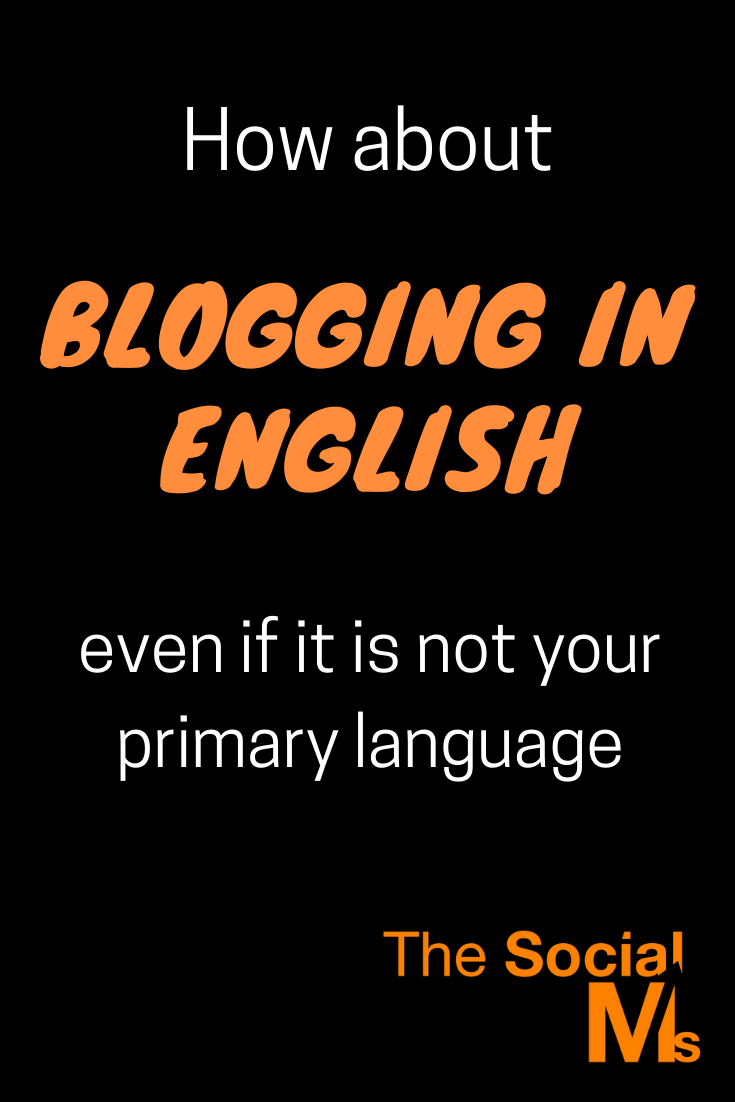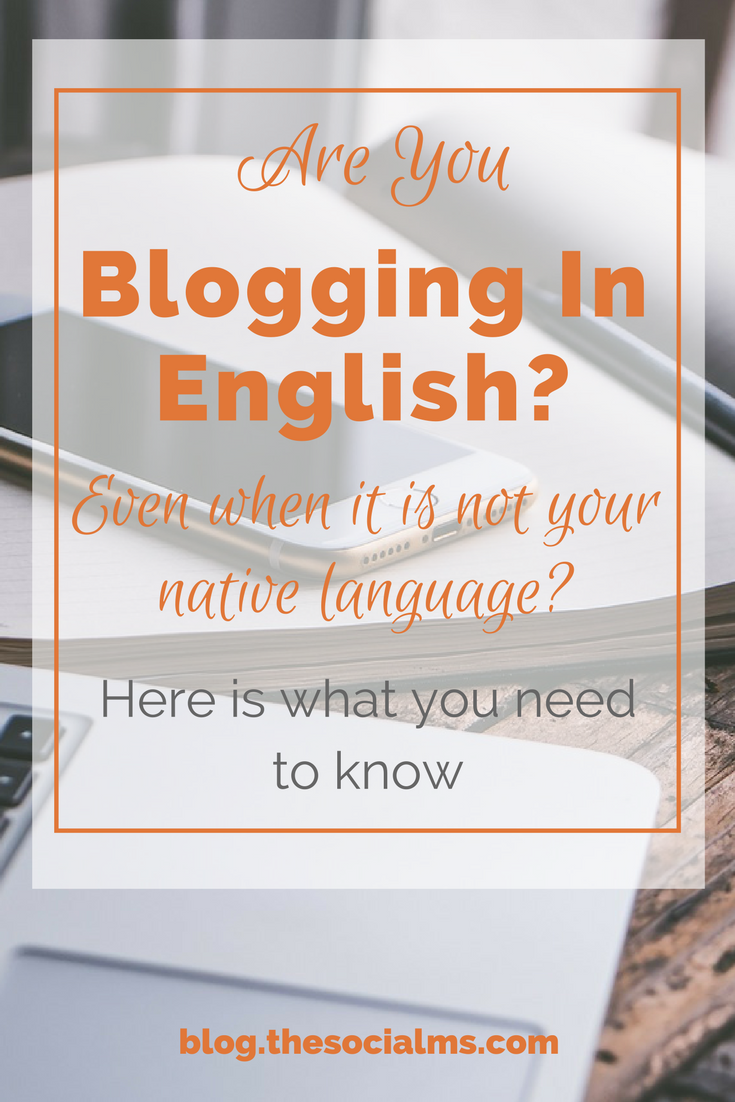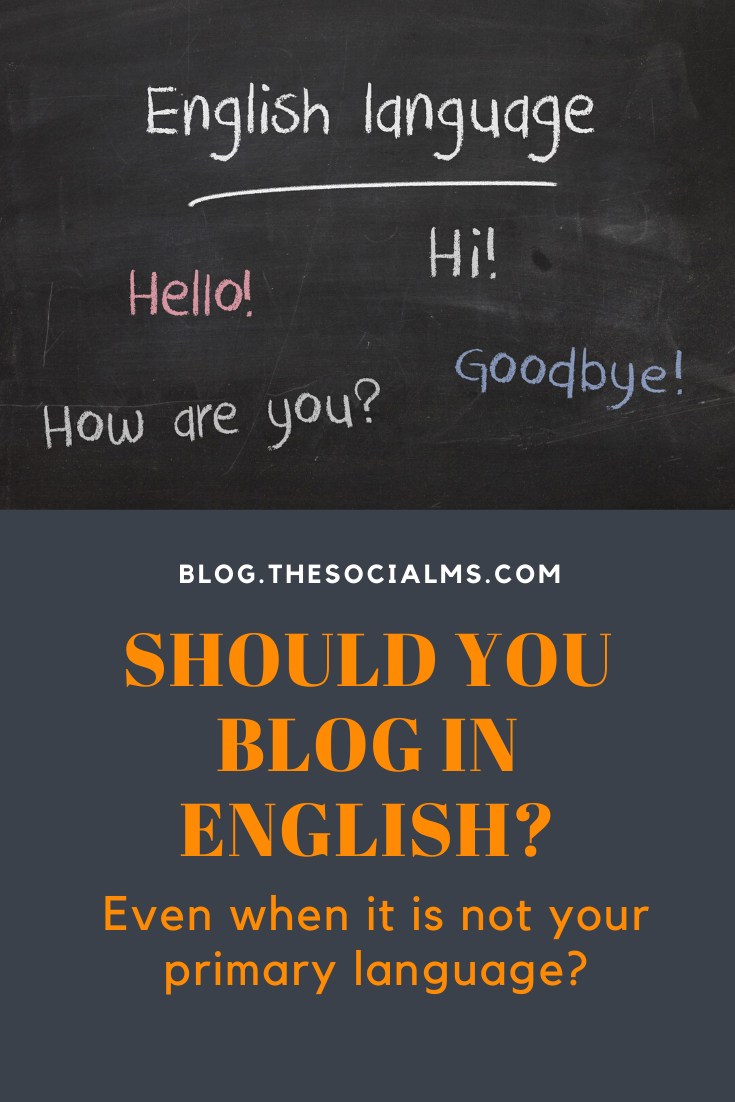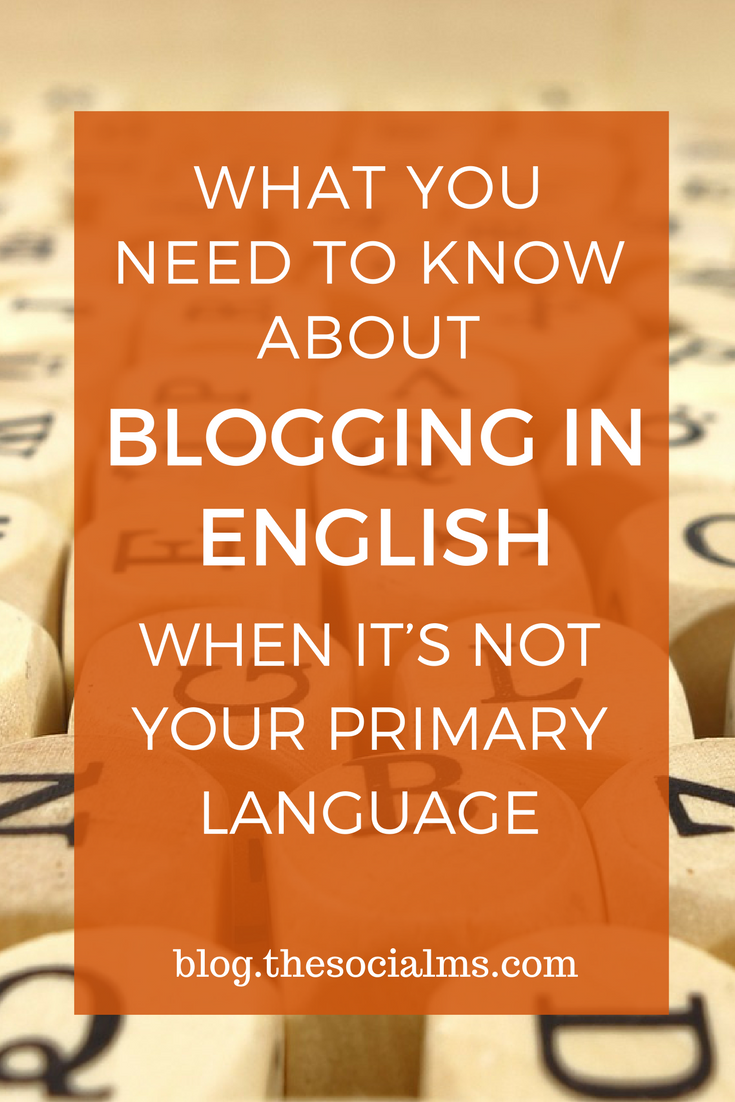“Can I or should I write on my blog in English, even if it’s not my primary language?”
This question comes up quite frequently in online marketing, by a lot of different people and for a lot of different reasons. The internet united most parts of the world – and the most common language is English. Content in the English language is by far the most consumed content on the web. And, like it or not – English is a language that is used in business all over the world.
And if you are taking blogging seriously, then it is a business relationship you are forming – a business relationship between yourself and your readers. The readers take the role of the consumer.
Sure, if you are writing about personal stuff and you don’t really care who reads it, you can skip this article. Blog in whatever language you are comfortable in.
Before you read on - we have various resources that show you exactly how to use social networks to gain massive traffic and leads. For instance, check out the following:
FREE Step-by-Step Twitter Marketing GuideFREE Pinterest Marketing Ebook
But if you are only half-serious about blogging you should, at least, make a conscious decision about the language you are blogging in.
Why Are We Blogging In English?
There are several reasons why Susanna and I are writing this blog in English.
First is the market: We are marketing experts with clients all over the world. We’ve worked with Russians and Bulgarians as well as Hungarians and Americans. If we want to reach potential clients then we need to enable them to understand what we write – and the only way to do that is to write in a language that they understand.
The second reason is the audience: Yes, in this case, audience and market are not the same. The audience is the general crowd that is interested in what we write, (hopefully) learns something from what we have to teach and maybe shares our content with others. Our market is the part of our audience who actually has the money and the need or is at least willing to hire us. Our audience consists of people willing to consume our content – and for social media, the audience in Germany is scarce. Widening our audience to an international crowd does not only increase our potential readers – it also increases engagement and interaction tremendously.
The third reason is simple: Because we can! We are both fairly comfortable in English, have both worked in an environment where it was the language spoken in the office, have both spent time in English speaking countries, and have both a lot of practical experience in writing in English. We are comfortable when writing in this language.
Reasons Not To Blog In English
Blogging in English does not always make sense, though, so let me give you a few possible reasons when you should write your blog in your mother tongue:
- You are truly writing “just for yourself”
- You are addressing a truly local market with truly local customers (NOT tourists!)
- You are blogging for your friends
- Your main website (the one your blog might just be complementary to) is not in English (or translate the website)
- You are really and truly incapable of writing understandable English (In which case you have stopped reading this article after the first sentence)
There are more, but I wanted to give you an overview of what came to my mind quickly.
What If I Am Comfortable Enough To Read English But Not For Writing?
 This is probably the most important question in this article.
This is probably the most important question in this article.
If you are comfortable reading English content, then you are advanced enough to write a blog. But it will be hard at first. You won’t publish an article every day – because you won’t manage to write as much at first.
Hey, before you read on - we have in various FREE in-depth guides on similar topics that you can download. For this post, check out:
FREE workbook: CREATE AWESOME BLOG POSTSFREE Beginner's Guide: START A BLOG
But: Blogging gets easier over time, and blogging in English is no exception. Here is what you need to do to practice your blogging skills:
Read A LOT!
You won’t write a great blog without reading a lot. Read blogs around similar topics to get better at writing – and read blogs in English to get better at writing in English.
There is a quote by Stephen King that says: If you want to write a lot, read a lot.
It’s true!
But you can optimize this rule to your needs: Read the type of content you want to write to learn faster. Read about topics you want to write about, read blogs – and read English blogs.
Write EVERY DAY!
If you want to get good at blogging in English, reading will only take you a part of the way. If you want to develop a voice, you need to write. Write every day. As said before, you probably won’t publish an article per day – that’s ok. But work on an article every day, and with time your language skill will improve, you will get faster and more confident and your content will improve.
Don’t Be Overly Critical
This one is really important – and for a lot of people, this one is really the factor that is holding them back in their life and not just when blogging in English!
When you are working on something that means a lot to you, it is easy to expect perfection of oneself. And when you are not entirely confident in your skills – like when blogging in English though it is not your primary language, you will not even have the feeling that it “is good enough.”
But the whole point of blogging is Imperfection. Blogging is – and should be – uncensored, unfiltered and especially unedited content. One of the most important things that new bloggers need to understand is that in blogging – the blog does not need to be perfect to be interesting or beautiful.
Perfection is not what you are going for. Instead, the notion of “good enough” is what makes blogging great. And good enough means: Don’t think too much about whether this comma is in the right place, or whether that word is written correctly. Instead, think about the following before hitting publish:
- Are the topic and the content interesting to yourself?
- Is the language understandable?
- Is the language easy to read for yourself?
- Would you read it to the end?
Still Not Confident? Get Someone Who Is NOT A Native English Speaker To Read Your Content
Yes, not native – just able to read English. Why? Because he will tell you whether it is good enough: Did he understand the language, did it keep him reading until the end, and did he like the text? A native speaker will correct commas, words, and sentences. That will eat your confidence even further.
Add More Than Words…
What do I mean by more than words? Easy, add graphical content that illustrates your point of view. Tools like Canva allow you to create images for free and quick. Embed Youtube videos, link to other people’s content. Whatever get’s your point across. If blogging in English is hard – illustrate your content without words.
A Couple Of Tools To Help You On Your Journey
If you have little confidence in your language skills or simply want to improve your writing, a simple spellchecker won’t do. Why? Because spelling is not the key factor that improves style (at least not if it is reasonably good). Style has to do with the length of sentences, the use of grammar, catchphrases, …
Luckily, in the age of the web, this is not as bad as it might seem to you. Here are a few tools that can help you on your journey.
Hemingway App
The Hemingway App comes in two versions – free online version and an advanced desktop version for $6.99. The Hemingway App online lets you paste your content, analyzes your text and gives you hints on how to improve it. It doesn’t do spell checking, but it does tell you which sentences to shorten, when you are using too many adverbs/adjectives, etc… Highly recommended for blogging in English!
Grammarly
Susanna wrote a review for Grammarly. It’s essentially like the Hemingway App on steroids: All functionality of the Hemingway App, plus spellchecking, actual grammar checking (the errors that MS Word misses!), style improvement hints and a lot more. If you need all in one style improvement, there is nothing better, but the full version is not free – starting at $29.95/month but comes with a 7-day free trial.
You can use basic grammar and spell checking in the free version of Grammarly.
But worth every penny and it will make blogging in English a lot easier.
What If My Language Isn’t Good Enough?
Seriously? You read this whole article, were able to follow it and still believe you are not good enough? If you didn’t use Google Translate you are probably just lazy…
But anyway: If you really have that much trouble with the English language you will either have to write in your language, not write at all, or improve your skills. Up to you!
Did you like this article? Please pin it!


